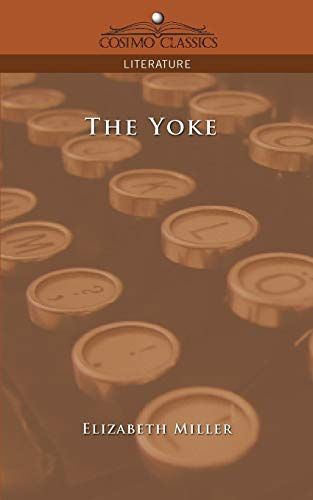
The Yoke
When the day declined he climbed down the front of the hill and crossed the narrow field toward his boat, which was buried in the rank vegetation of the water's edge. At the Nile he noted, a little distance up the river, a familiar figure among the reeds. For a moment he hesitated and then rambled through the riotous growth in that direction. As he drew near, Rachel raised herself from a search in a thicket of herbs, her arms full of them and her face a little flushed. "Idler!" said Kenkenes. "Nay," she answered with a smile, "I am at work--learned work." "Gathering witch-weeds for an incantation, sorceress?" "Not so. I am hunting herbs to make simples for the sick." "Of a truth? Then never before now have I craved for an illness that I might select my leech." -from "Chapter XIV: The Margin of the Nile" "A romance of the days when the Lord redeemed the children of Israel from the bondage of Egypt," this 1904 novel is a beautifully written adaptation of one of the most beloved Biblical tales. Kings and courtiers, priests and healers, lovers and warriors, the men and women of Miller's prose spring to life, marvelously realized, in a lost world captured as deftly as if the author had herself visited the ancient shores of the Nile. A splendid tale of people standing at the precipice of the future, caught between the old gods and the new dominion of Yahweh, The Yoke will delight readers of historical fiction. American author ELIZABETH MILLER (1878-1961) also wrote Saul of Tarsus: A Tale of the Early Christians (1906), The City of Delight: A Love Drama of the Siege and Fall of Jerusalem (1908), Daybreak: A Story of the Age of Discovery (1915).